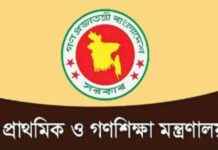Benefits of National Identification Cards in Bangladesh
In Bangladesh, the issue of the National Identification Card (NID) program has been a topic of debate among the government and the Election Commission (EC) for several years. The EC claims that by independently managing the program, they ensure skilled operation and safeguard citizens’ information. On the other hand, the government presents various arguments, leading to uncertainty while trying to ensure service and data security for citizens.
The EC’s staff has been vigilant in their work, while the government emphasizes a gradual transition to separate control. Despite the government’s attempts to pass an ordinance in 2023 to transfer the NID program under the Ministry of Home Affairs’ Security Services Division’s supervision, the initiative faced resistance from EC staff. Recently, the interim government decided to repeal the law enacted by the Awami League government to separate the NID from the EC and proposed amendments to the ordinance to transfer it to a separate commission. This decision has caused frustration among EC staff.
Why the Government Wants to Take Over the NID
Recently, Phayez Ahmed Taiyab, the Special Assistant to the Chief Adviser of the Ministry of Posts, Telecommunications, and Information Technology, raised concerns at an event titled ‘Ownership of the NID’ held at the ICT Building in Agargaon. He highlighted the 35 types of information under the Commission’s jurisdiction, questioning whether all these data are necessary for the implementation of voting rights. Taiyab emphasized the need for a data authority that complies with global standards to regulate and maintain data integrity.
“We want everyone to adhere to these global standards to prevent any misconceptions,” Taiyab stated, urging for a unified approach to avoid misunderstandings. The EC has made several claims, including not wanting to hand over the NID server to the EC. They argue that the IT infrastructure and operational capacity should remain under their control. However, the establishment of an independent data authority is crucial for legal frameworks, authentication frameworks, and data extension frameworks.
The EC’s Chief Election Commissioner has taken a tactical approach, stating that the voter list is a by-product of the NID. It was not the case before, as there was only a voter card. Over the 17 years, significant effort has been invested in developing the system, creating a network that spans the entire country. They have created an extensive information repository through additional work beyond their usual tasks.
The Realities of National Identification Cards and Reality
Before 2007, voter registration and information from the voter list were written and edited manually. In 2007, the Election Commission, with the assistance of the Bangladesh Army and the UNDP, initiated the digitization of the voter list with photos. The voter list database was transformed into an advanced database, enabling the provision of national identification cards using voter list data. If the voter list data integrated with the national identity card database is transferred elsewhere, it will compromise the constitutional authority of the EC.
The Challenges of Connecting Data From the Voter List Database to the NID
The voter registration program and the national identity card program are interdependent, much like Siamese twins. Currently, cross-checking between the national identity card and the voter list and vice versa is essential, alongside various revisions to prevent inconsistencies. Separating these two services will introduce complexities in election-related services and national identity card services.
Economic Implications
The national identity card service, under the jurisdiction of the Election Commission, has transformed into a sustainable service for the country and the government. Establishing a separate power model will incur significant unnecessary costs in creating a digital infrastructure, installations, training, and other conveniences. It is possible to resolve these expenses without transferring an efficient service.
A Model for Effective Change
Bangladesh’s model has been recognized as a best practice, emulated in various countries. The Election Commission’s model is acknowledged as a ‘good practice,’ serving as an effective service for the country and the government. Any deviation from the existing system may result in extensive unnecessary spending on digital infrastructure, installations, training, and other conveniences.
Expansion of Customer Service
Currently, 182 organizations are engaged in collecting/verifying information from the existing database of the Election Commission. By integrating relevant data, such as birth-death registration programs, marriage-divorce information, education-related data, relevant information on individuals convicted of criminal offenses, vehicle registration, and driving licenses into the voter list database, the demand for timely information updates in the national identity card data repository is paramount.
In conclusion, the Election Commission staff’s morale and pride have been diminished by the attempted service relocation, leading to a fragile state of mind and disrupted confidence. By acknowledging the existing situation, any corrective change can confront an unexpected and disruptive situation with a stable state of affairs.
Expanding the scope of the national identification card service for expatriate Bangladeshis is crucial. The service, known as ‘Voter Registration and National Identity Card Service,’ has been launched in nine missions abroad. The Election Commission has already decided to expand this service to 40 mission offices, aiming for further growth in the near future.
Bangladesh Time: 2204 hours, March 12, 2025.
























